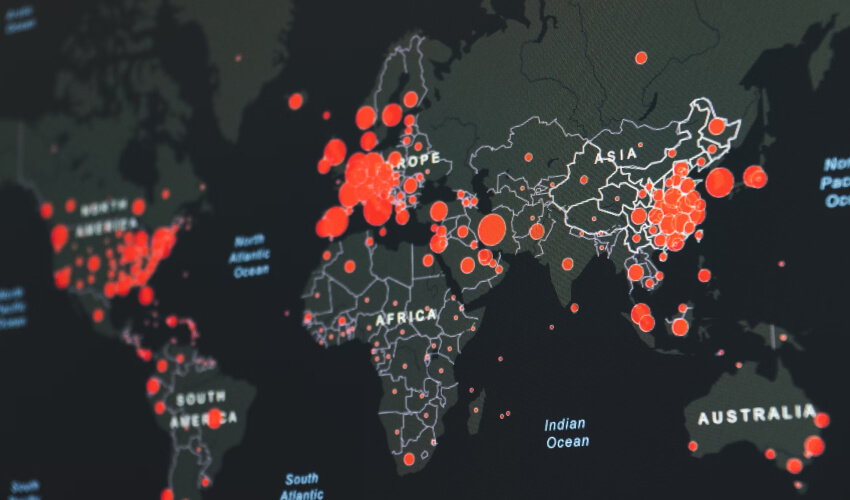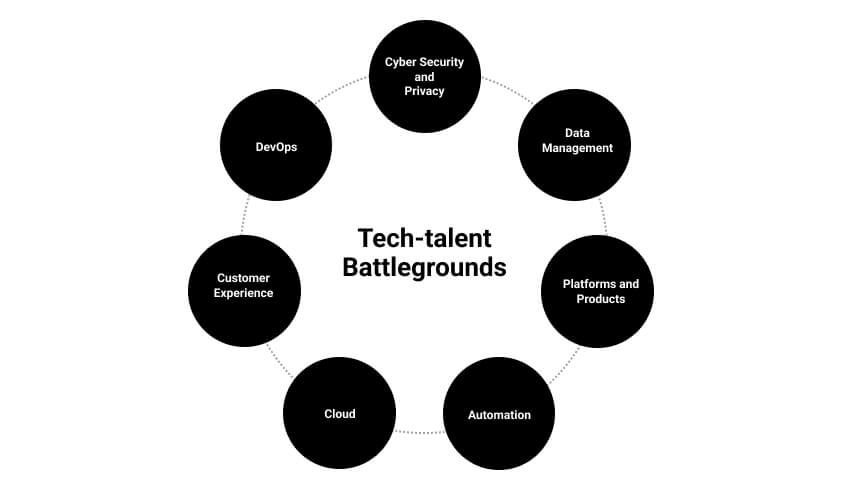Digitalisation has transformed commerce, communication, entertainment, and other facets of human life. Not only did the recent shift towards digital speed up innovation, but it also drove economic change.
Technological advancements introduced a distinct economy, a.k.a. digital economy, where the Internet, cloud computing, big data, and other tech play a crucial role in underpinning new waves of economic growth.
With the global economy making a digital pivot, it’s critical for enterprises to navigate the pace of change and meet modern customer demands.
First, What Is a Digital Economy?

Source: Photo by Kelvin Han on unsplash
At its simplest, a digital economy is any economic activity that occurs online. It results from everyday commercial transactions and business interactions enabled by the Internet, mobile technologies, and the Internet of things (IoT).
Here are a few characteristics that distinguish digital economy from the regular economy:
Data-driven. Businesses rely on cloud computing technologies and other infrastructures for easier, accessible consumer data storage. Such a solution allows them to collect data on anyone who visits their site and deliver personalised experiences.
Internet-powered. The Internet is one of the main drivers of this newly emerging economy. It has made information immediately available to the public and changed how companies operate.
Mobile connectivity. Smartphones and mobile applications have encouraged the growth of the digital economy. More consumers are now engaging with businesses through their mobile devices to inquire and shop for products or services.
Collaborative intelligence. The fusion of humans and machines (i.e., artificial intelligence) enables companies to work more effectively whilst saving time and money. Machines assisting humans and vice versa reimagine the traditional work processes and manage customer journeys in the digital era.
4 Advantages of a Digital Economy

Source: Photo by Martin Sanchez on unsplash
1. Expand business reach
In a traditional economy, the market is limited, and the trade can be constrained by geographic boundaries. There are instances where products are available only in particular stores or even select countries.
Conversely, a digital economy allows consumers to choose from an array of retailers, compare prices, and shop for products when they want it. The Internet makes it easier for businesses to connect with potential consumers regardless of their locations.
2. Fuel Work Opportunities
Internet-based workplace systems have kept many companies, if not majority, afloat during the pandemic. Not only did technologies accelerate the shift to remote working, but it also presented other work opportunities.
Thanks to digitisation, machine learning, data management, and other skills have grown more importance. Digital roles, such as support technicians, software developers, and business analysts, have become more relevant and in demand today.
3. Boost Overall Productivity
The digital economy has increased organisational productivity—and technology adoption played a big part in this growth. Advanced tech, including automation and artificial intelligence (AI) replaced routine manual tasks, helping employees focus on more value-adding work.
Chatbots—a computer program trained to strike human-like conversations with users via chat—for example, handle customers’ queries on behalf of a live person. They significantly reduce administrative burden for sales professionals, freeing up their time for prospecting and other duties.
4. Lower Costs and Save Time
Digital platforms and technologies revolutionised commerce and transformed how brands interact with potential customers. By digitising the in-store experience and running most of the business online, companies can save on rental and labour costs.
From AI chatbots to product suggestions based on previous purchases, online payment schemes, and click-and-collect, embracing digitalisation enables businesses to engage modern buyers and deliver seamless experience faster than ever.
People traverse the web to find information quickly, shop for products, or stay entertained. If online assets (i.e., eCommerce sites, mobile apps, social profiles, etc.) are non-existent or aren’t used effectively, it’s hardly impossible to reach leads and acquire customers.
Tips for Succeeding in the Digital Economy

Source: Photo by Tim Douglas on pexels
1. Build & Optimise Digital Assets
To win in the digital-first economy, businesses of all sizes should establish a solid online presence
To win in the digital-first economy, there’s one critical step that businesses of all sizes should take—establish an online presence.
Nowadays, people traverse the web to find information quickly, shop for products, or stay entertained. If online assets (i.e., eCommerce sites, mobile apps, social profiles, etc.) are non-existent or not used effectively, it’s hardly impossible to reach leads and acquire customers.
Here are a few ways to leverage these digital assets:
- ▪ Marry UI and UX design components to create functional and seamless user experiences.
- ▪ Produce timely and relevant content pieces and share them across all channels.
- ▪ Optimise the website and its content for the search engines.
2. Prioritise Customer Experience
When organisations understand their customers at a granular level, delivering consistent, tailored online experiences becomes easier.
Thankfully, marketing platforms, customer relationship management (CRMs), and digital analytics tools can provide crucial insights that aid businesses in nurturing better customer relationships.
Salesforce 360, for example, is an integrated CRM platform that offers a single, shared view of every customer. Every step of the customer journey is stored in one place, enabling teams to collaborate efficiently and deliver consistent, personalised experiences across every touchpoint.
3. Create a Healthy Innovation Ecosystem
Built on hyperconnectivity, the digital economy requires companies to ensure everyone in the business has access to relevant digital tools. However, technologies aren’t the only essential element of the innovation ecosystem—but also employees’ digital skills.
According to a McKinsey study, while many organisations have taken digital transformation initiatives, only a few respondents have sustained the benefits over time. The culprit? Significant skill gaps.
The research identified tech skills, and categorised them into seven battlegrounds. In another McKinsey survey, 87% of senior executives globally said their companies aren’t fully prepared to address the skill gap.

Source: McKinsey and Company
These findings suggest that companies need to focus on hiring the apt talents and reskilling and upskilling their current workforce to make the most out of digital transformation.
Win in the Digital Economy
The digitally driven economy opens a world of opportunities, from tapping into previously inaccessible markets to boosting overall productivity, and reducing costs, among many other things.
While the digital era offers many possibilities, it has a fair share of challenges—and delivering experiences that actually convert is one.
If your business struggles to delight customers and win them over, eWave will be pleased to help. We have enabled brands from various industries to elevate their customer experiences and boost their online sales.
Check out our award-winning client work, or contact us to know more.

